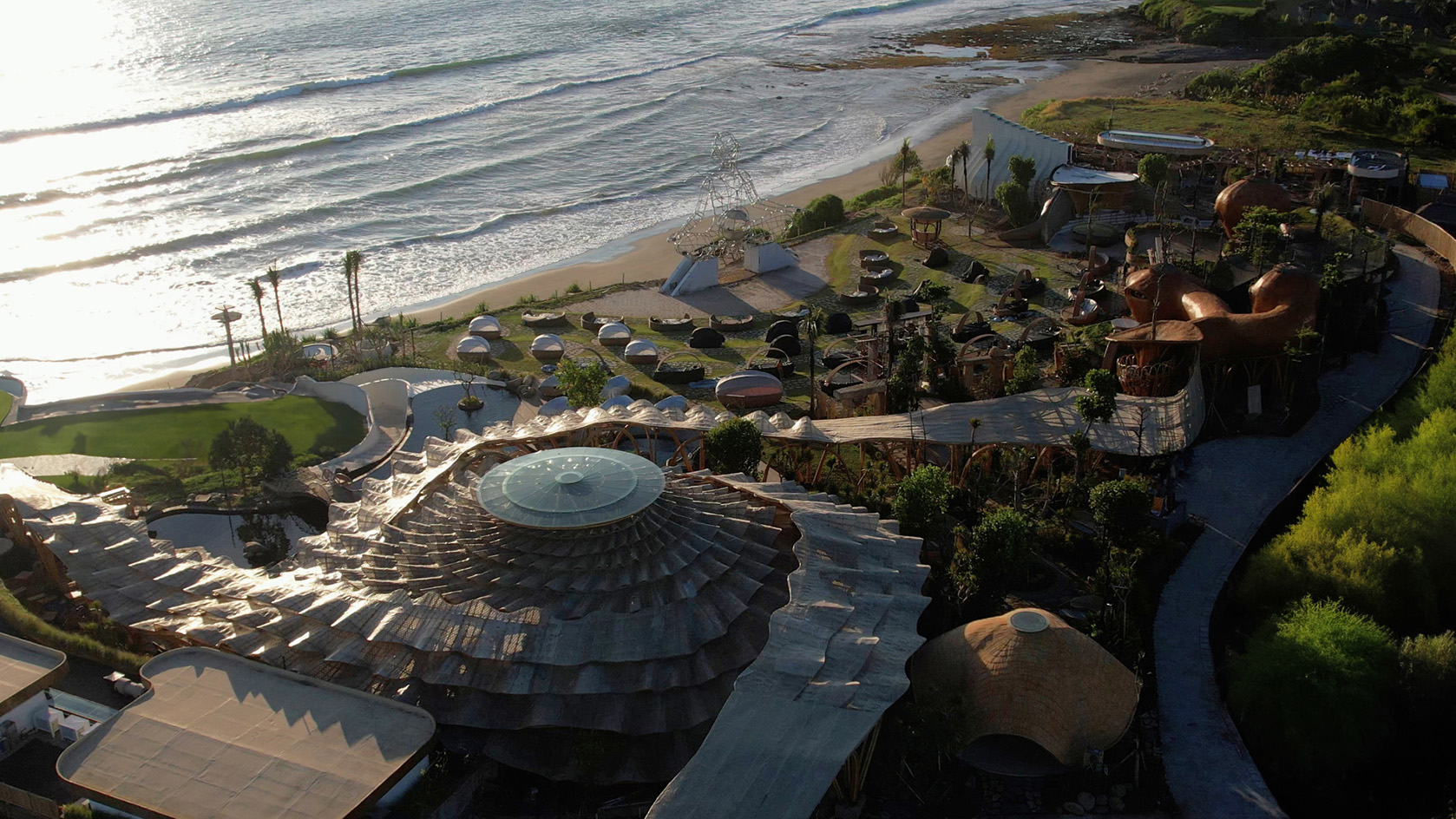
Nuanu Creative City sits across 44 hectares alongside a rugged coastline in Bali, Indonesia’s ‘island of the gods', between Nyanyi Beach and Tanah Lot Temple. The multi-project development, currently underway, is a creative complex that merges art, technology and nature in an ambitious amalgamation of one entrepreneur's bold vision.
Conceptualised as a future utopia, Nuanu Creative City is the brainchild of Russian tech businessman and multimillionaire Sergey Solonin. The self-dubbed ‘experiential park’ extends to education and wellness and aims to act as a case study for sustainable architecture living.

Explore the Nuanu Creative City development in Bali
Solonin, who relocated to Bali and initiated the project three years ago, has invested $100 million into Nuanu to date. Across the vast site where barren land and a wild jungle once stood, newly built interconnected pathways and streets now lead to AI-managed art, a boutique hotel, a beach club, a spa and wellness facility, a children’s education campus, sound-healing spaces, yoga studios, and an alpaca farm; there's even a recently opened butterfly breeding programme that aims to repopulate native species and increase local biodiversity.
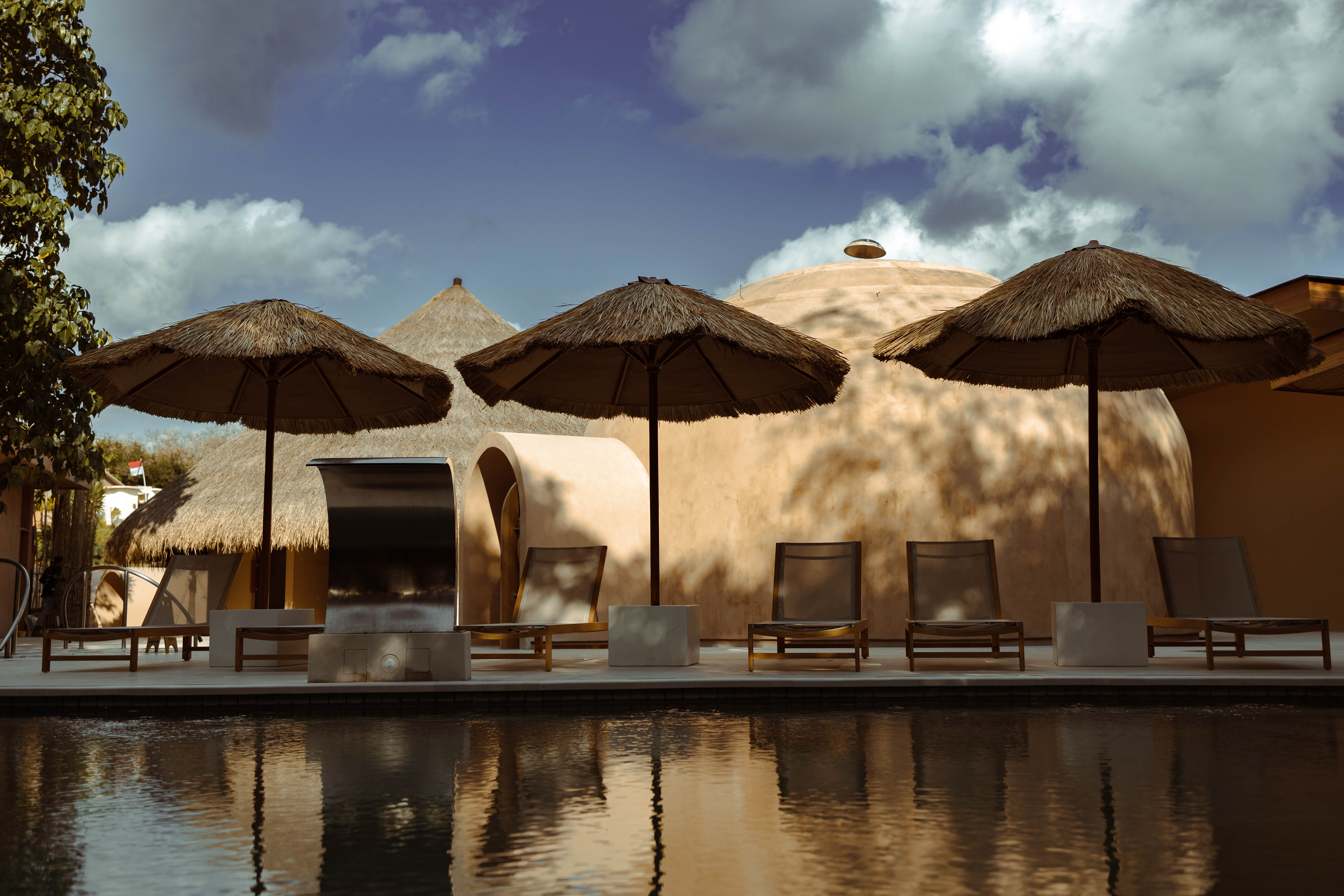
Visually akin to the Burning Man project in Nevada, USA, Nuanu Creative City was conceived by Solonin to resonate with the famed music festival’s core values on sustainability and collaboration. The site currently boasts a recycled timber ‘lighthouse’ by architect Arthur Mamou Mani (the Tri Hita Karana Tower), bamboo architecture structures by Charlie Hearn of Inspiral Architects and Pablo Luna Designs, and artworks by Daniel Popper and Alexander Milov.

Nuanu, meaning ‘in the process’ in Balinese, currently features 32 completed, discrete spaces referred to as ‘projects’, in collaboration with individual business partners. Each project partner commits to contributing five per cent of their monthly revenue to Nuanu’s Social Fund, which is distributed to reforestation or social initiatives. With an additional 18 projects currently in progress, Solonin anticipates an eventual total of 50 diverse spaces where visitors and the creative community can gather.
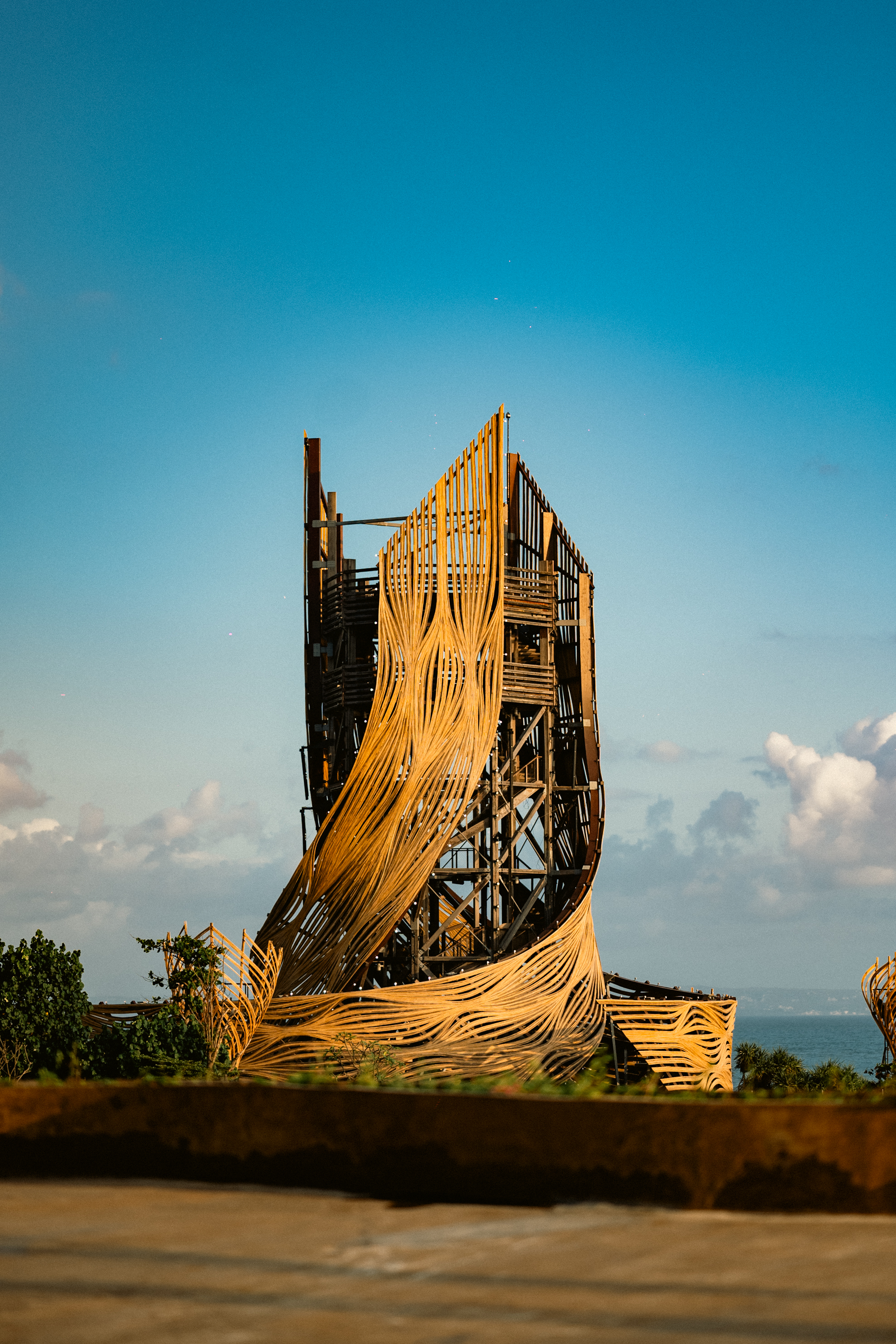
‘Agility and flexibility are critical for a project like ours, which is not just about building structures but creating a living, breathing ecosystem where art, nature, and technology coexist harmoniously,’ says Solonin. ‘We adapt as we go, integrating new ideas and technologies while staying in tune with the needs of the community and environment, ensuring we respect Bali’s culture and ecosystem while welcoming global perspectives.’
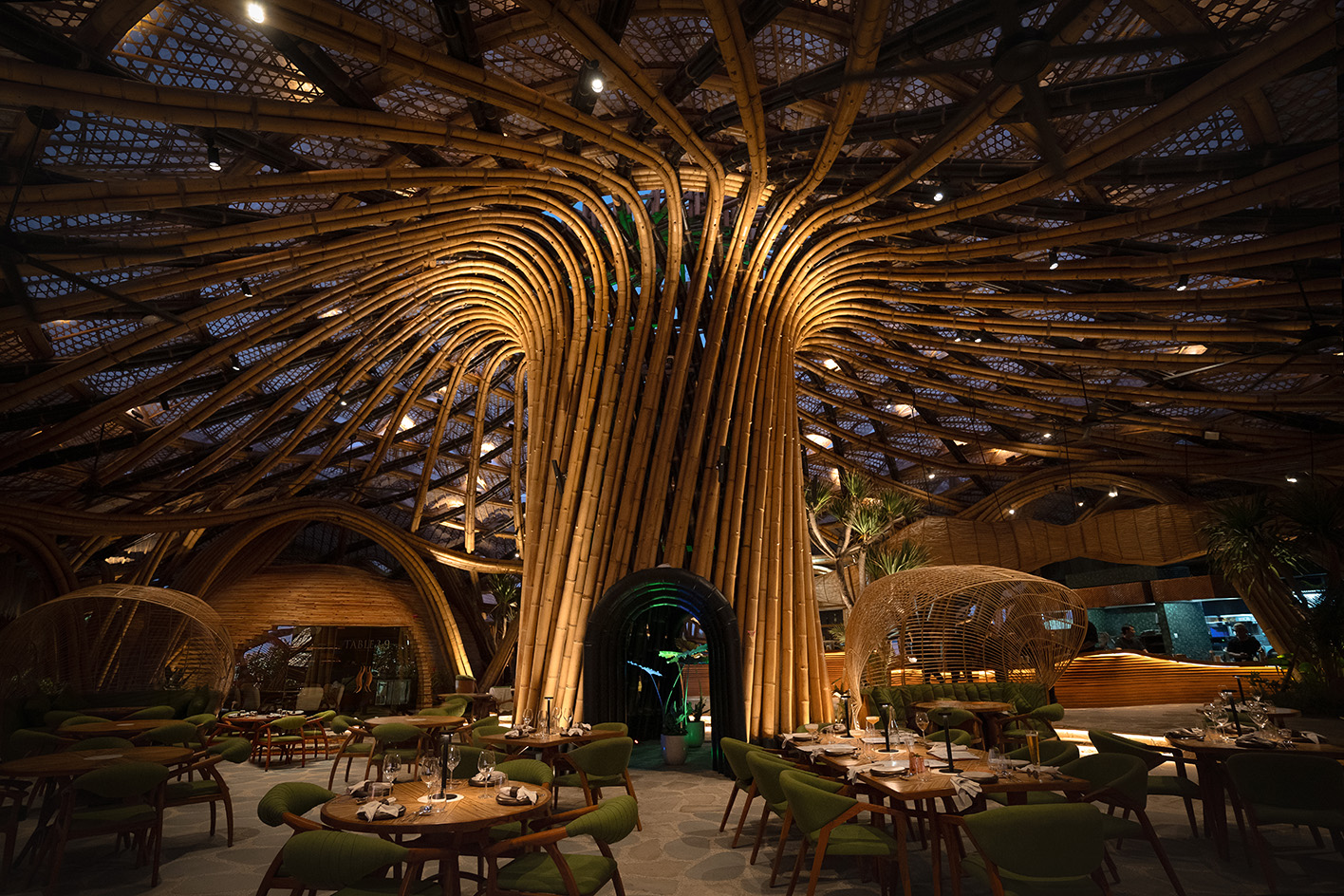
Yet what sets the development apart from the over-tourism and overdevelopment currently plaguing the island is Solonin’s sustainability efforts and pledge to preserve two-thirds of the site’s natural landscape. Aurora Media Park, a 5,000 sq m outdoor immersive AI-powered art park, is found interwoven into an existing native jungle with decade-old clusters of wild bamboo.
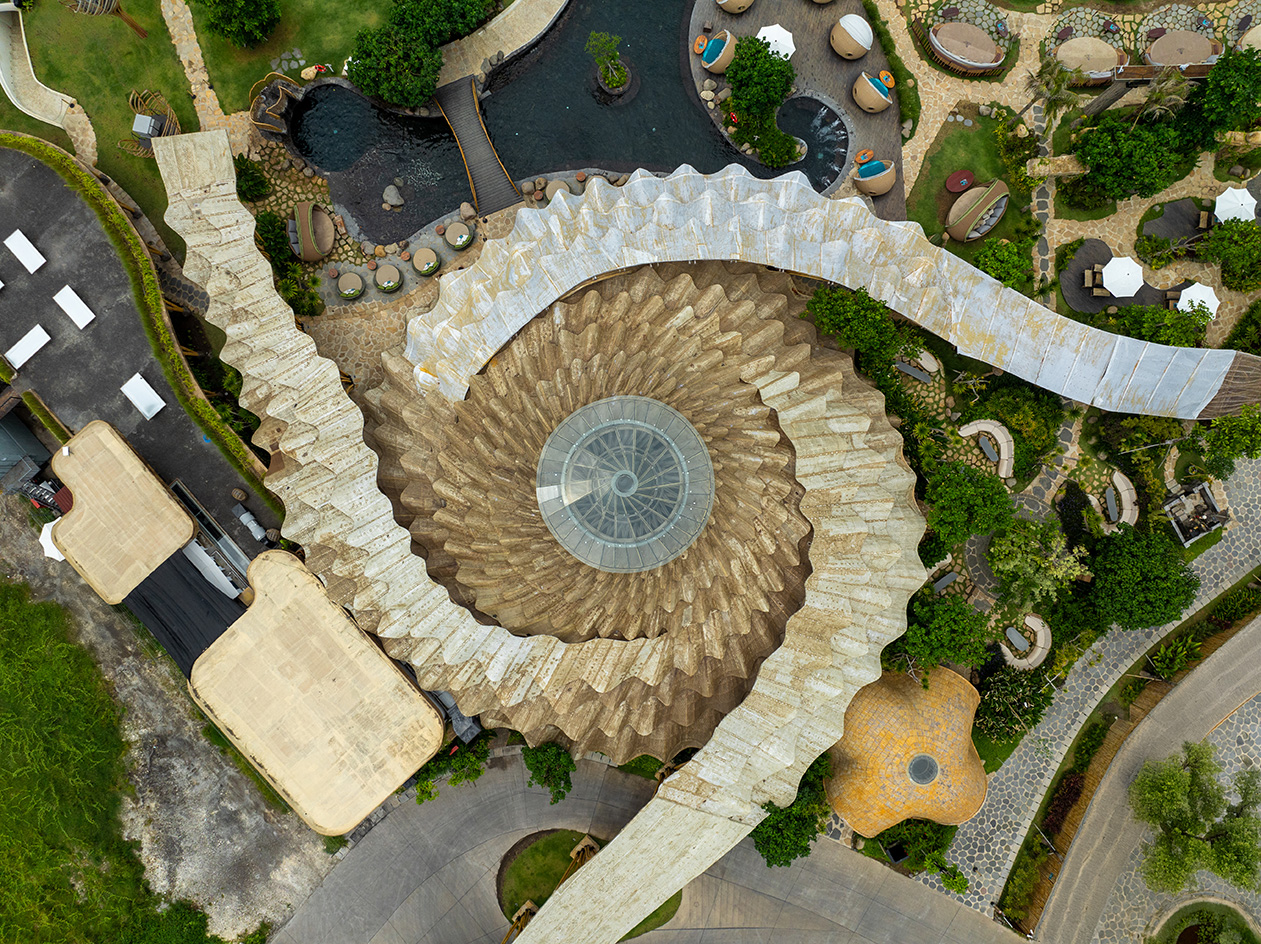
At luxury hotel Oshom Bali, a series of treehouse guest rooms were designed above historic mangroves, leaving the latter undisturbed in their critical role as an integral waterway. For the design of Lumeira, Nuanu’s spa and wellness facility, co-owners James Larkin and Jasper Sceats took inspiration from traditional Balinese thatched structures, utilising bamboo and alang alang, a natural coarse grass known as a long-lasting roofing material. The entire spa is carbon-zero and operates on circular, renewable energy – the central wood-fired sauna features a pyrolysis stove that transfers excess heat to nearby pools.
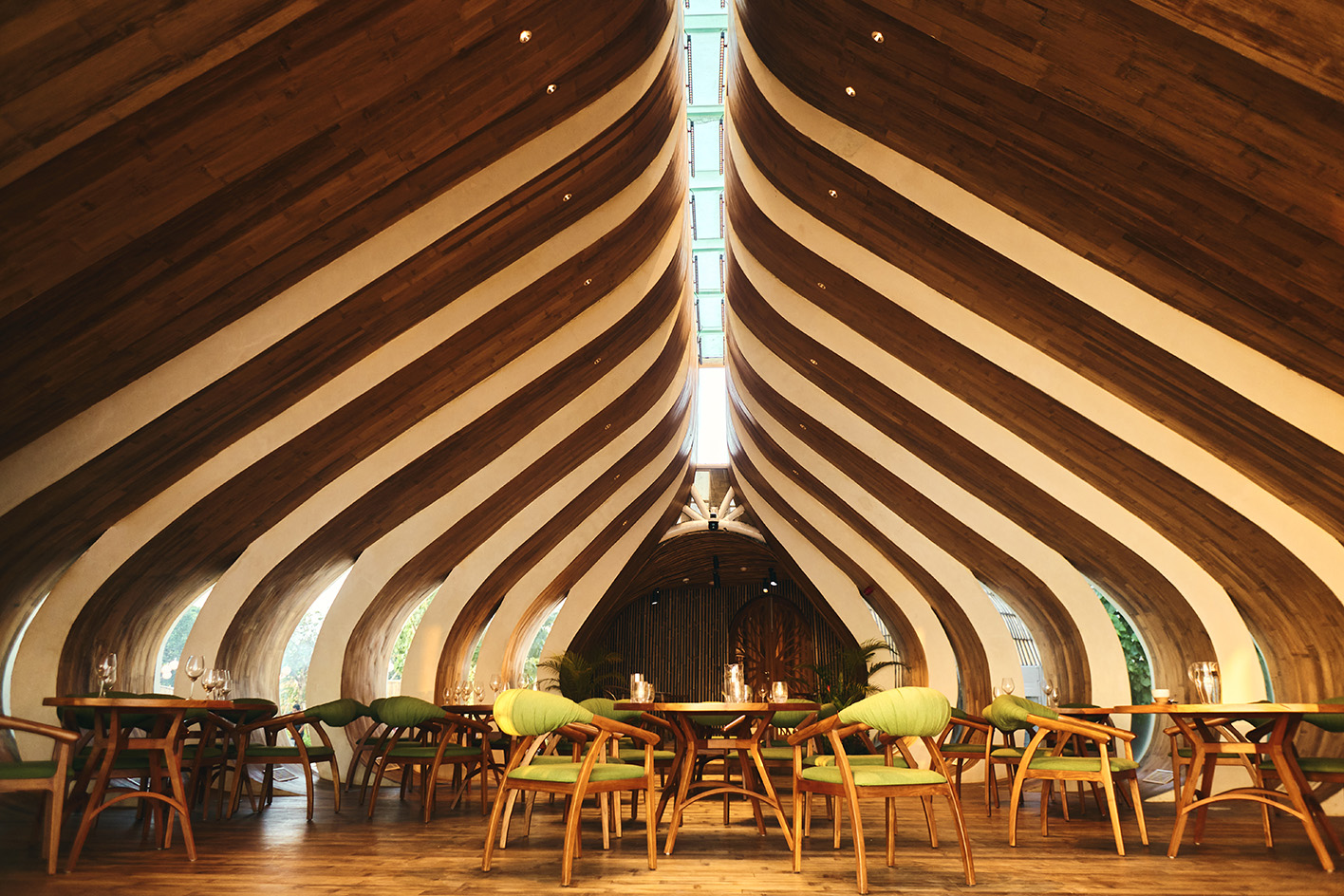
In the next ten years, Solonin envisions Nuanu will ‘come to life as a vibrant global hub where creativity thrives, attracting some of the world’s most innovative minds to live, collaborate, and visit’, he says. ‘It will be home to a dynamic community of visionaries, artists, and change-makers, living and working in thoughtfully designed spaces that inspire creativity.’







